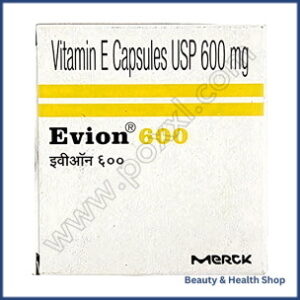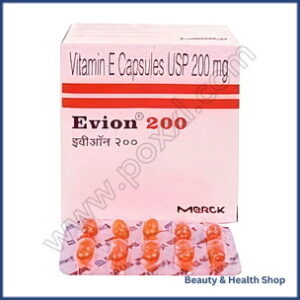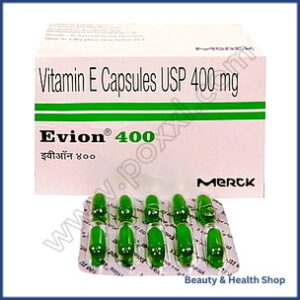ADDICTION
ALCOHOL DEPENDENCE
QUIT SMOKING
ALLERGY
ANTI FUNGAL
FUNGAL INFECTION
FUNGAL NAIL INFECTIONS
ANTI-REJECTION DRUGS
ANTI WORM
ANTIBIOTIC
BACTERIAL INFECTIONS
ARTHRITIS
GOUT
OSTEOARTHRITIS
RHEUMATOID ARTHRITIS
BLOOD
LOW PLATELET COUNT
THROMBOPHLEBITIS
VARICOSE VEINS
COLON
ANAL FISSURE
PILES
ULCERATIVE COLITIS
DIABETES CARE
DIABETES INSIPIDUS
DIABETES TYPE
DIABETIC FOOT ULCERS
GLUCOSE MONITOR
EYES/EAR CARE
DRY EYES
EYE CARE
EYE EXAMINATION
EYE INFECTION
EYE LASHES
EYE PAIN
GLAUCOMA
OCULAR HYPERTENSION
UVEITIS
FEVER CARE
MALARIA
RHEUMATIC FEVER
TYPHOID FEVER
GASTROINTESTINAL
ACIDITY
CONSTIPATION
CROHN'S DISEASE
DIARRHOEA
GALLBLADDER STONES
INTESTINAL ULCERS
IRRITABLE BOWEL SYNDROME
MOTION SICKNESS
NAUSEA
Ascorbic Acid 50 Ml (Vitamin C) (Ascorbic Acid)
| Active Ingredient (Generic Name): | Ascorbic Acid |
|---|---|
| Indication: | Nutritional deficiencies |
| Manufacturer: | Pharmafabrikon India |
| Packaging: | 50 ml in one vial |
| Strength: | 50ml |
From: $34.00
Considering incorporating Ascorbic Acid 50 mL, also known as Vitamin C, into your daily routine can be a wise choice for overall health enhancement. This essential nutrient offers a multitude of benefits, from supporting your immune system to aiding in collagen production for healthier skin and bones. But, have you ever wondered about the different forms of this supplement and how they impact absorption and effectiveness? Understanding the nuances of Vitamin C variations could lead to more informed decisions about your health regimen and peak well-being.
Why is this medication prescribed?
As a healthcare provider, you may prescribe ascorbic acid (Vitamin C) to address deficiencies in your patients. Vitamin C is essential for the growth, development, and repair of body tissues. It helps the body make collagen, an important protein used to make skin, cartilage, tendons, ligaments, and blood vessels.
Vitamin C is also a powerful antioxidant that helps protect cells from damage caused by free radicals. Free radicals can contribute to the development of conditions like heart disease and cancer. By prescribing ascorbic acid, you can help boost your patients’ immune systems and improve their overall health.
Furthermore, Vitamin C plays an important role in the absorption of iron from plant-based foods, making it especially important for individuals following a vegetarian or vegan diet. Deficiencies in Vitamin C can lead to symptoms like fatigue, muscle weakness, joint pain, and easy bruising. By recommending ascorbic acid, you can help your patients maintain adequate levels of this essential nutrient.
How should this medicine be used?
To use this medicine properly, follow the dosage instructions provided by your healthcare provider. Ascorbic Acid (Vitamin C) is commonly available in a 50 mL solution form. Your healthcare provider will determine the appropriate dosage based on your specific needs and medical condition. It’s crucial to follow the recommended dosage carefully to achieve the desired benefits without risking any potential side effects.
Ascorbic Acid can be taken orally, usually with water or juice to mask the sour taste. Shake the bottle well before use to guarantee proper mixing of the solution. Use the measuring device provided with the medication to accurately measure the prescribed dose. Don’t exceed the recommended dosage unless instructed by your healthcare provider. If you miss a dose, take it as soon as you remember. However, if it’s almost time for your next dose, skip the missed dose and continue with your regular dosing schedule.
Always store this medication at room temperature, away from moisture and heat, and keep it out of reach of children. If you have any questions regarding the proper use of Ascorbic Acid, consult your healthcare provider for further guidance.
Other uses for this medicine
Consider exploring additional applications for Ascorbic Acid (Vitamin C) beyond its significant use. Apart from its well-known role in boosting the immune system and aiding in the absorption of iron, Vitamin C has various other potential benefits. It’s a powerful antioxidant that helps protect cells from damage caused by free radicals, which are unstable molecules that can harm the body’s cells.
Vitamin C also plays an essential role in collagen production, which is vital for maintaining healthy skin, bones, and connective tissues. Additionally, it may help reduce the risk of chronic diseases, such as heart disease, by lowering high blood pressure and improving blood flow.
Some studies suggest that Vitamin C could potentially shorten the duration of the common cold and may even alleviate symptoms of asthma. It’s important to consult with a healthcare provider before incorporating Vitamin C supplements into your routine, especially if you have pre-existing health conditions or are taking other medications.
What special precautions should I follow?
Before starting or changing your ascorbic acid (Vitamin C) regimen, it’s important to check for any potential drug interactions. Make sure to consult with your healthcare provider to determine the best course of action for your specific situation.
Being aware of any possible interactions can help guarantee the effectiveness and safety of your treatment plan.
Check for Drug Interactions
Why should you be cautious about potential drug interactions when taking ascorbic acid (Vitamin C)?
It’s important to weigh how different medications may interact with Vitamin C to safeguard your safety and the effectiveness of your treatment. Here are some reasons to be mindful of drug interactions:
-
Decreased Absorption: Some medications can reduce the absorption of Vitamin C in your body.
-
Increased Side Effects: Certain drugs can lead to heightened side effects when taken with Vitamin C.
-
Altered Medication Effectiveness: The effectiveness of both the medication and Vitamin C might be changed when taken together.
-
Risk of Toxicity: In some cases, combining certain drugs with Vitamin C can increase the risk of toxicity in your system.
Always consult with your healthcare provider to understand how different medications may interact with Vitamin C.
What special dietary instructions should I follow?
To maintain peak vitamin C levels in your body, adjust your dietary intake accordingly. Including vitamin C-rich foods in your daily meals is essential. Incorporate fruits such as oranges, strawberries, kiwi, and grapefruit into your diet. Vegetables like bell peppers, broccoli, and tomatoes are also great sources of vitamin C. Consuming these foods raw or minimally processed can help retain the vitamin’s potency.
Additionally, consider taking supplements like ascorbic acid if your doctor recommends it to meet your daily requirements.
Avoid excessive heat and prolonged cooking when preparing vitamin C-rich foods, as this can cause a loss of the vitamin. Be mindful of overconsumption as well, as excessive vitamin C intake may lead to digestive disturbances in some individuals. It’s advisable to consult with a healthcare provider or a nutritionist to determine the right amount of vitamin C for your specific needs. By following these dietary instructions, you can support your body’s vitamin C levels and overall well-being.
What should I do if I forget a dose?
If you forget a dose of ascorbic acid (Vitamin C), take it as soon as you remember. However, if it’s almost time for your next dose, skip the missed dose and continue with your regular dosing schedule. Don’t take a double dose to make up for a missed one. Taking extra doses can lead to an increased risk of side effects.
To help you remember to take your doses on time, you may find it helpful to set a reminder on your phone or use a pill organizer. Consistency in taking your medication is important for it to be effective in maintaining adequate levels of Vitamin C in your body.
If you frequently forget to take your doses, consider talking to your healthcare provider about strategies to help you remember. They may have suggestions or alternative dosing schedules that can better fit your routine. Remember, adherence to your medication regimen is crucial for achieving the desired health benefits from ascorbic acid supplementation.
What side effects can this medication cause?
Ascorbic Acid, also known as Vitamin C, may cause some side effects. Monitor for persistent symptoms as some side effects can be serious.
If you experience any concerning symptoms, it’s important to call your doctor immediately.
Monitor for Persistent Symptoms
Monitoring for persistent symptoms is essential when taking ascorbic acid to identify any potential side effects. Some common side effects to watch out for include:
- Upset stomach or diarrhea
- Nausea or vomiting
- Headache or fatigue
- Flushing or redness of the skin
Some side effects can be serious. If you experience any of the following symptoms, call your doctor immediately:
When experiencing certain severe symptoms, promptly contact your healthcare provider while taking ascorbic acid. Some side effects of this medication can be serious, and if you notice any of the following symptoms, seek medical attention immediately:
- Severe stomach cramps
- Persistent diarrhea
- Difficulty breathing
- Swelling of the face, lips, or tongue
These signs could indicate a severe reaction to the medication that requires immediate medical intervention.
It’s essential to be aware of these potential side effects and act promptly if you experience any of them while using ascorbic acid. Your healthcare provider will be able to assess the situation and provide you with the necessary care to address these symptoms effectively.
What should I know about the storage and disposal of this medication?
For proper storage and disposal of ascorbic acid (Vitamin C), make sure to keep it in a dry place away from direct sunlight and moisture. Store the medication at room temperature between 68-77 degrees Fahrenheit (20-25 degrees Celsius). Avoid storing it in the bathroom or kitchen where humidity levels can fluctuate. Keep the medication tightly closed in its original packaging to protect it from light and moisture. Don’t freeze the liquid form of ascorbic acid.
When it comes to disposal, follow specific guidelines for the proper disposal of medication in your area. Don’t flush ascorbic acid down the toilet unless instructed to do so. Instead, check with your pharmacist or local waste disposal company on how to safely dispose of unused or expired medications. It’s important to dispose of medications properly to prevent potential harm to others and the environment. If you have any questions regarding the storage or disposal of ascorbic acid, consult your healthcare provider or pharmacist for guidance.
In case of an emergency/overdose
If an emergency or overdose occurs with ascorbic acid (Vitamin C), immediately contact poison control or seek medical assistance.
Excessive intake of ascorbic acid can lead to symptoms such as stomach cramps, diarrhea, nausea, and kidney stones. In case of an overdose, it’s vital to act promptly to prevent any potential complications.
Poison control centers are equipped to provide guidance on the necessary steps to take in such situations. Medical professionals can assess the severity of the overdose and recommend appropriate treatment. It’s important to provide as much information as possible about the amount of ascorbic acid ingested and any symptoms experienced.
Avoid self-treatment or waiting for symptoms to worsen before seeking help. Prompt action can help mitigate the effects of an overdose and prevent any long-term consequences. Always keep the contact information for poison control handy in case of emergencies related to medication overdoses.
What other information should I know?
To enhance your understanding of ascorbic acid (Vitamin C), it’s important to be aware of its interactions with medications and potential side effects. Ascorbic acid can interact with certain medications, such as blood thinners like warfarin, increasing the risk of bleeding. It can also affect the absorption of certain drugs like iron supplements and certain antibiotics. Hence, it’s important to inform your healthcare provider about all the medications you’re taking before using ascorbic acid.
Moreover, while ascorbic acid is generally safe when taken at recommended doses, excessive intake can lead to side effects such as stomach cramps, diarrhea, and nausea. It’s advisable to follow the dosage instructions provided by your healthcare provider or the product label to avoid adverse effects. Additionally, individuals with a history of kidney stones should exercise caution when taking high doses of ascorbic acid, as it may increase the risk of developing kidney stones. If you experience any unusual symptoms or side effects while using ascorbic acid, consult your healthcare provider promptly.
Brand names
You can find ascorbic acid, commonly known as Vitamin C, under various brand names in the market. Different pharmaceutical companies produce this essential vitamin in different brand forms. Here is a table listing some popular brand names for ascorbic acid:
| Brand Name | Manufacturer |
|---|---|
| Celin | Abbott |
| Redoxon | Bayer |
| Ester-C | The Vitamin Shoppe |
| Emergen-C | Alacer Corp |
These brand names offer a range of options for consumers looking to supplement their Vitamin C intake. Kindly be aware that while the active ingredient is the same across these brands, there may be variations in additional ingredients or formulations. When selecting a brand, consider factors such as dosage form, additional nutrients, and price to find the best fit for your needs. Always consult with a healthcare professional before starting any new supplement regimen to make sure it aligns with your health goals.
Purchase Options for Medication
When considering purchasing medication, explore different avenues to make sure you find the most suitable option for your needs. One common option is to buy medication from a local pharmacy. Pharmacies offer convenience and the expertise of pharmacists who can provide guidance on the medication.
Another option is to purchase medication online from reputable websites. Online pharmacies can offer a wide selection of medications and may provide competitive pricing. However, it’s essential to verify the legitimacy and safety of the online pharmacy before making a purchase.
Additionally, you may consider buying medication in bulk or through a subscription service if you require long-term treatment. This can often result in cost savings and the convenience of having your medication delivered to your doorstep regularly. Some healthcare facilities also have in-house pharmacies where you can purchase prescribed medication conveniently after a doctor’s visit.
Ultimately, the best purchase option will depend on factors such as cost, convenience, and the specific medication needed.
To summarise
To summarize, let’s review the key points discussed about purchasing medication to guarantee you find the most suitable option for your needs. When buying medication, it’s essential to consult with healthcare professionals to make sure you’re choosing the right product for your specific health requirements. Consider factors such as your medical history, allergies, and any potential interactions with other medications you may be taking.
Always purchase medication from reputable sources, such as pharmacies or licensed online retailers, to avoid counterfeit or substandard products that could jeopardize your health. Check for proper labeling, expiration dates, and seals to guarantee the authenticity and safety of the medication.
Compare prices and look for discounts or generic alternatives to save money without compromising quality. Be cautious of unusually low prices or offers that seem too good to be true, as they may indicate a counterfeit product.








There are no reviews yet.